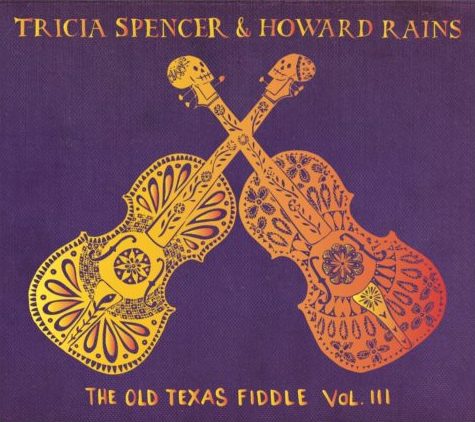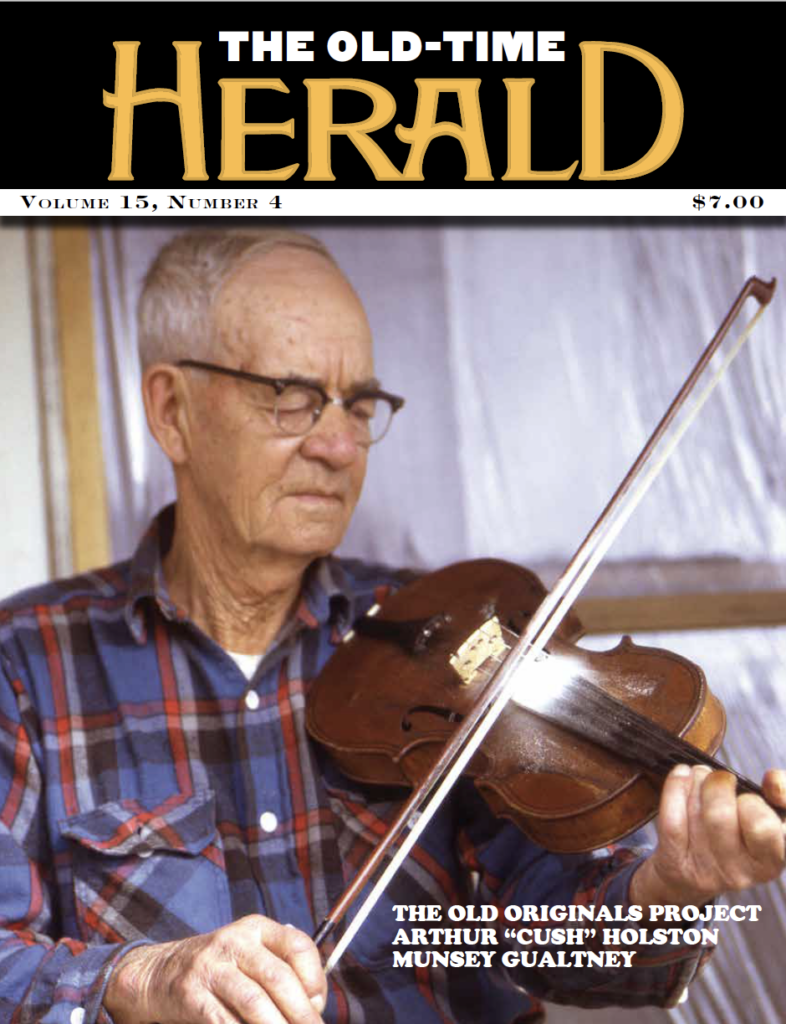The subtitle displayed not on the package but on the CD’s readout is Little Tunes from the Big State. That neatly summarizes a good-natured sense of humility and humor that pervades this set, from the performances to the commentary and artwork in the 16-page booklet. “Little Tunes” isn’t a dismissive description but rather one of scale: tunes that are hand-hewn and devoid of grand aspirations. Fiddlers Tricia Spencer and Howard Rains have been together, musically and personally, since 2012. This final installment in what Spencer calls their “Texas trilogy” is both homage to past tradition bearers and reflection of what Spencer deems “our combined distinct styles of fiddling…a very specific sound that is made when our fiddles sing together.” Twin fiddle is a Texas tradition most popularly associated with the Western swing sound of the Texas Playboys led by Bob Wills, albeit a style with Hispanic roots. Kansas native Spencer brings a different twin fiddle tradition to the dance, that of Midwestern Scandinavian fiddlers. She writes of working to “hone my seconding skills and revive a tradition that has been largely lost to the old-time world.” So while Texans were the sources of the tunes here, the performances unapologetically blur lines of regional stylistic purity.
That might also be said of many of the 21 tunes played in this generous (70 minutes) collection. It opens with “Campbells Are Coming,” a tune stereotypically Scottish if e’er one was. Yet this version’s source is a recording of Austin fiddler J. W. Whatley, whose portrait is affectionately if whimsically rendered in pen and ink by Spencer in the booklet, which also offers a brief Whatley bio, complete with a couple of wonderful anecdotes. The booklet’s art and commentary are integral to the experience here: there are even fiddle and banjo tuning details for anyone aspiring to play the tunes. (Spencer & Rains are accompanied by their cohorts in the Skeleton Keys—Brendan Doyle, banjo, Nancy Hartness, guitar, Charlie Hartness, ukulele, Emily Mann, bass, and Joseph DeJarnette, bass—on “Where Is My Gray Horse?”)
“Recorded live in Howard and Tricia’s living room” is a production note that explains the relaxed albeit professional feel of these performances. Credit goes to Joseph DeJarnette for recording, mixing and mastering them so they don’t sound like field recordings. Even if the performances weren’t delightful (they are), the booklet’s insights into the lives of the ofttimes eccentric Texas fiddlers are worth the price of admission. One of them, poet-fiddler Alton Mead, deserves the last word here: “You carry the tunes in your head and play them from your heart, then you’re an old fiddler.”


Leave a Reply